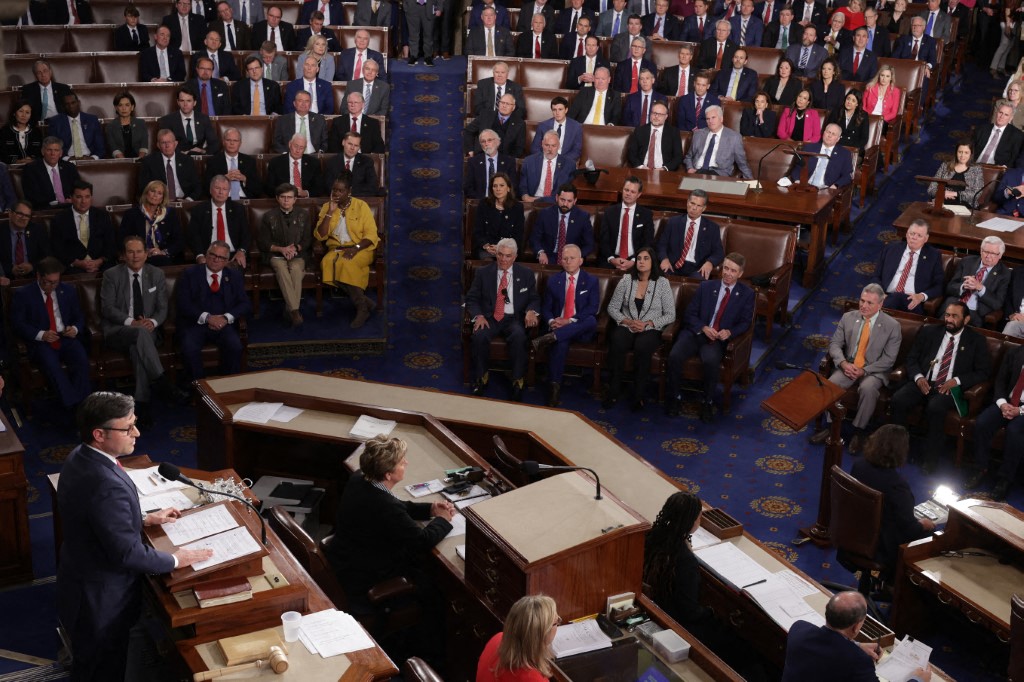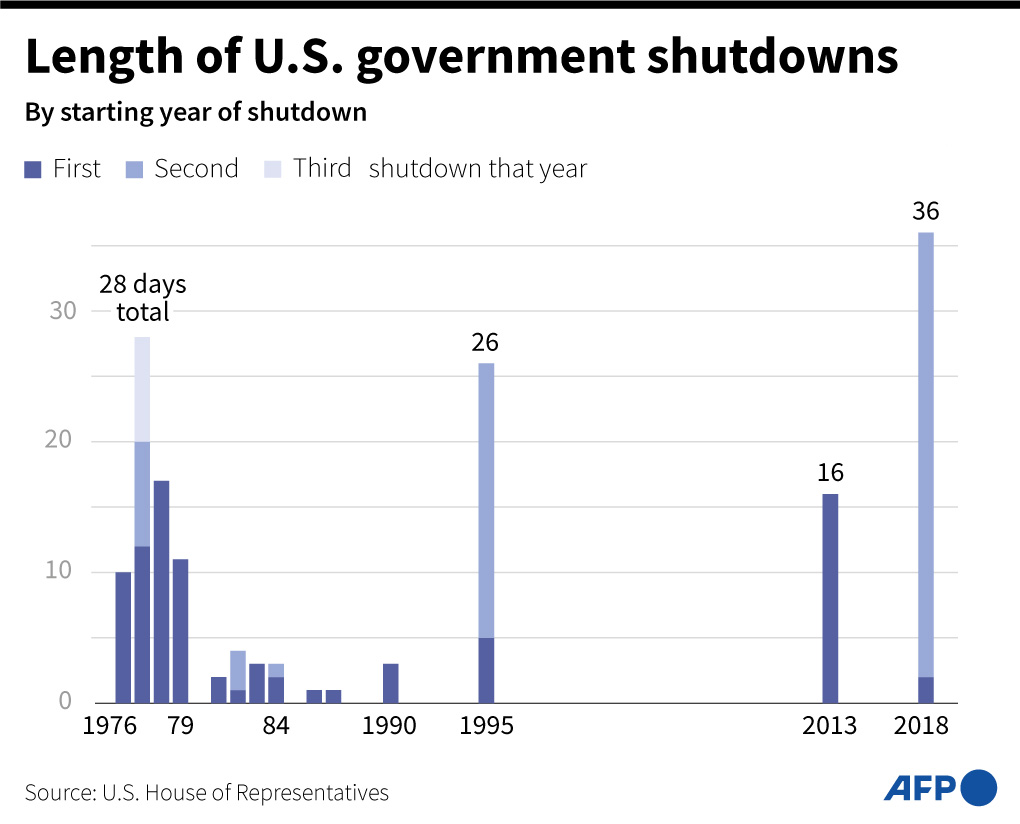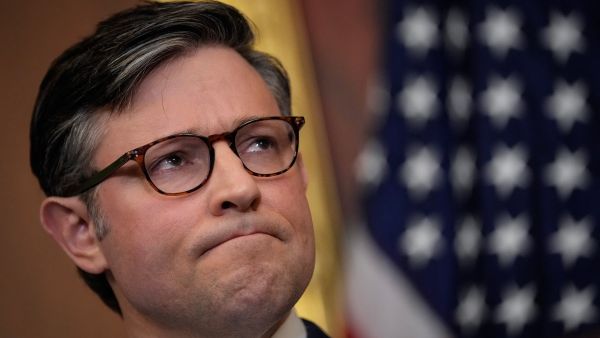ALBAWABA – The United States (US) House of Representatives Speaker Mike Johnson on Saturday revealed a new stopgap bill intended to avoid a US government shutdown in the next couple of weeks.
The House of Representatives Rules Committee will hold a hearing Monday to decide whether to move the bill to a floor vote on Tuesday, Bloomberg reported.
Johnson’s stopgap bill buys Congress some time, temporarily prevents a US government shutdown and does not provide funding for Israel, Ukraine and border security, Agence France-Presse (AFP) confirmed.
However, even though the risk of a US government shutdown on November 18 has eased in the wake of Johnson’s bill, it almost instantly drew outrage from both Democrat and Republican lawmakers.
Both sides oppose Speaker’s stopgap bill to prevent US government shutdown
Republican opposition claims the bill does not cut enough spending while Democrats say it cuts too much spending.
The bid would see some bills needed to keep the government open passed via a short-term stopgap bill, until January 19, while the rest would be pushed until February 2.

Newly elected US Speaker of the House Mike Johnson (R-LA) delivers remarks after the House of Representatives held an election in the U.S. Capitol on October 25, 2023 in Washington, DC. Johnson proposed a stopgap bill on November 11 to prevent a US government shutdown. (Photo by ALEX WONG / GETTY IMAGES NORTH AMERICA / Getty Images via AFP)
Johnson and his allies on this bill must get it passed by both bodies of Congress, the House and Senate.
Republicans control the House by a narrow majority, which makes it more difficult for Johnson to pass his bill, especially with the party divided. Let alone getting it passed by the Democrat-controlled Senate, with President Joe Biden’s democrat Administration so outspokenly against it.
"The bill will stop the absurd holiday-season omnibus tradition of massive, loaded-up spending bills introduced right before the Christmas recess," Johnson posted on X, formerly Twitter.
Fellow Republican Chip Roy, of Texas, was among those quickly voicing dissent from the party's right. He posted on X that his opposition to the plan "cannot be overstated" and complained that it does not cut spending enough.
On the other hand, the White House slammed the proposal as "a recipe for more Republican chaos and more shutdowns."
"House Republicans are wasting precious time with an unserious proposal that has been panned by members of both parties," Press Secretary Karine Jean-Pierre said in the statement.
Yet, Bloomberg argues, by refusing to impose the 30 percent immediate cut to spending and the US asylum law changes demanded by hardline conservatives, Johnson actually improved his odds. Despite antagonising lawmakers from both sides, his balanced bid increased the probability of a compromise that would get the bill passed and the job done, averting a US government shutdown in the process.
One week away from a US government shutdown
Federal government funding expires at midnight next Friday into Saturday. Without an agreement by November 17, the world's largest economy will hit the wall.
Though this will not be the first US government shutdown, it would deliver a hurtful blow to the country's economy and its credit rating, which has already been downgraded or put under review.

This would not be the first ever US government shutdown - AFP / Paz PIZARRO
More than 1.5 million government employees will go without pay, most federal facilities including national parks will be closed, and sectors such as air travel could be forced to slow down, AFP reported.
Notably, this is not the first close call in 2023. Washington has now become well-acquainted with these last-minute battles over funding, and often finds a compromise in the 11th hour, or shortly after.
But Johnson – a little-known lawmaker from Louisiana with only limited leadership experience – faces a delicate juggling act.
He will have to balance the demands of the small but influential group of hardline Republicans who want strict fiscal tightening with those of the Democrats who control both the Senate and White House.
The Republican divide over government spending has already forced Johnson to cancel floor votes on two annual spending bills in his brief time as speaker, Bloomberg reported. Further dissent by conservatives could force him to back off Saturday’s plan, raising the risk of a US government shutdown once again.









